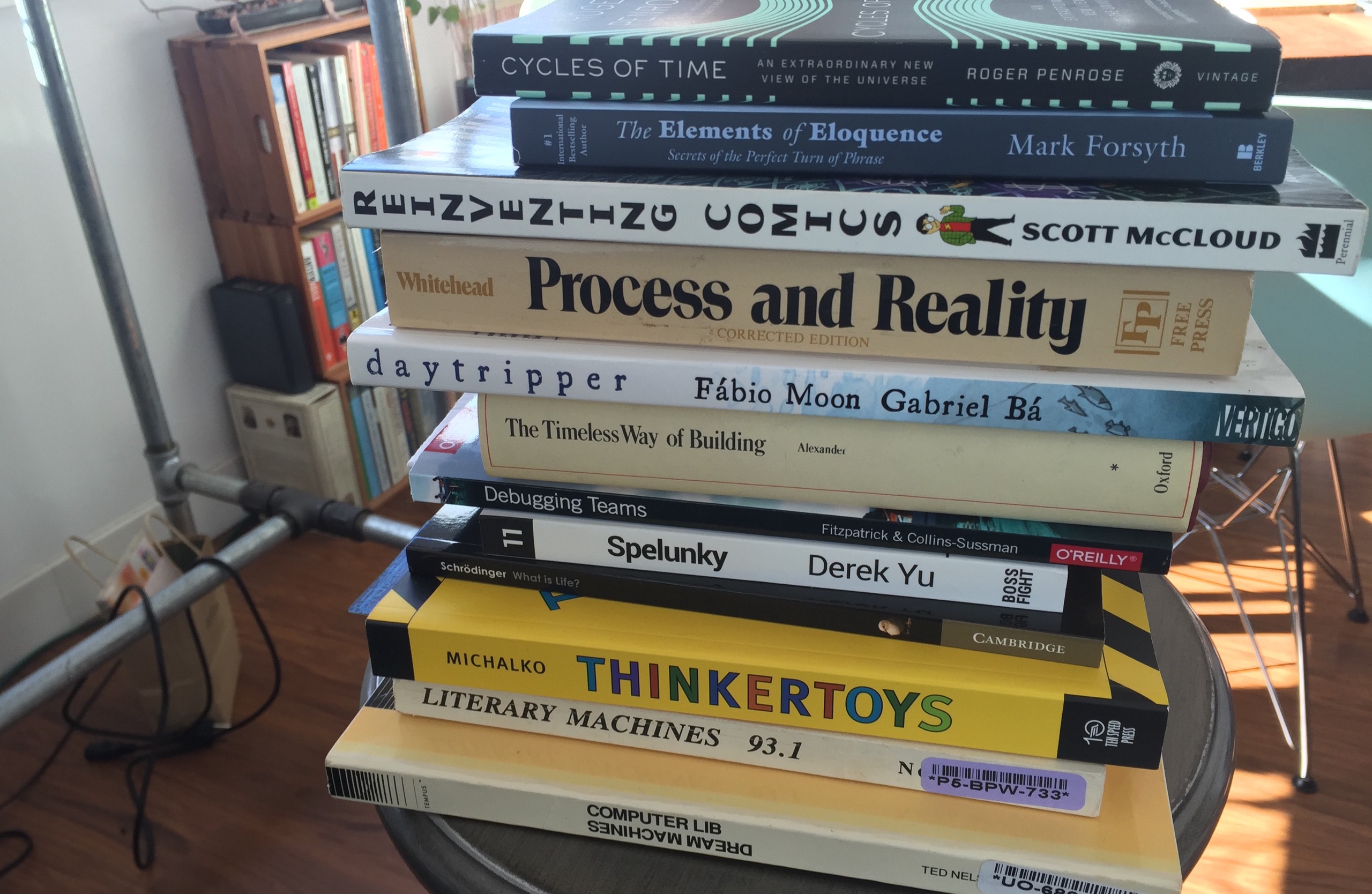Inspired by Michael Fogus’s post about reading, in February I started keeping a reading log. I’ve been writing down when I start and finish books. Here’s my log so far this year:
Reading 2016Feb 10- finished Blindsight. Started The Eternal Flame
Feb 22- finished The Eternal Flame.
Feb 28- finished Reinventing Organizations
Mar 11- started Thinkertoys
Mar 13- started The Oregon Experiment
Mar 15- started Debugging Teams
Mar 20- finished The Oregon Experiment
Mar 27- started Understanding Comics
Mar 30- started Thinking Forth
Apr 3- finished Understanding Comics
This has been an enlightening exercise, and I’ve learned some interesting things. First, there’s a really stark contrast between books that grab me and books that don’t. I finished The Eternal Flame in a little under two weeks, The Oregon Experiment in one, and Understanding Comics in 6 days. Thinkertoys and Debugging Teams I started a month ago and haven’t picked back up again. That isn’t to say they’re not good books—they just don’t do the thing where they nag and tug at my mind and draw me back. One of Fogus’s suggestions on how to read more is to read only what you enjoy—and that means knowing what it is that you enjoy. A reading log is good data to that effect.
The second thing I’ve learned is that the time it takes me to read a medium-sized book that I love and enjoy is about a week, which is surprising to me. I don’t have specific data, but at a guess I spent about 5 hours with Understanding Comics, over three separate occasions (in a cafe in Berkeley for an hour, a rooftop bar in Napa for an hour, and about 3 hours on my couch at home). There’s no reason I couldn’t have read it in a day or two, but even though I ate that book up, it still took me a full week to get in the 5 hours of attention it took to read the whole thing. (As an aside, I tried to get some more specific data on time spent reading for Kindle books, but unfortunately there’s no public API for Kindle, and their non-public API is somewhat involved. But I’d love to see a graph of position number over time.)
There are other interesting patterns that seem to be emerging, though the data’s too small to tell so far. For example, I think I generally read many non-fiction books in parallel, but only one fiction book at a time. It’s been a while (a month and a half) since I read any fiction—do I cycle between fiction and nonfiction? And what kinds of books do I tend to enjoy and get through most quickly?
Keeping a reading log does for reading what keeping a food journal does for weight loss. Memory is murky and malleable where paper (or Notes.app) is clear and solid. Putting the data where you can see it all at once lets you make inferences and judgements that would have been impossible through the haze of memory.
One inference I didn’t need the reading log for, though: if I’m going to get through all the books I buy, I’m going to need to up my pace.
